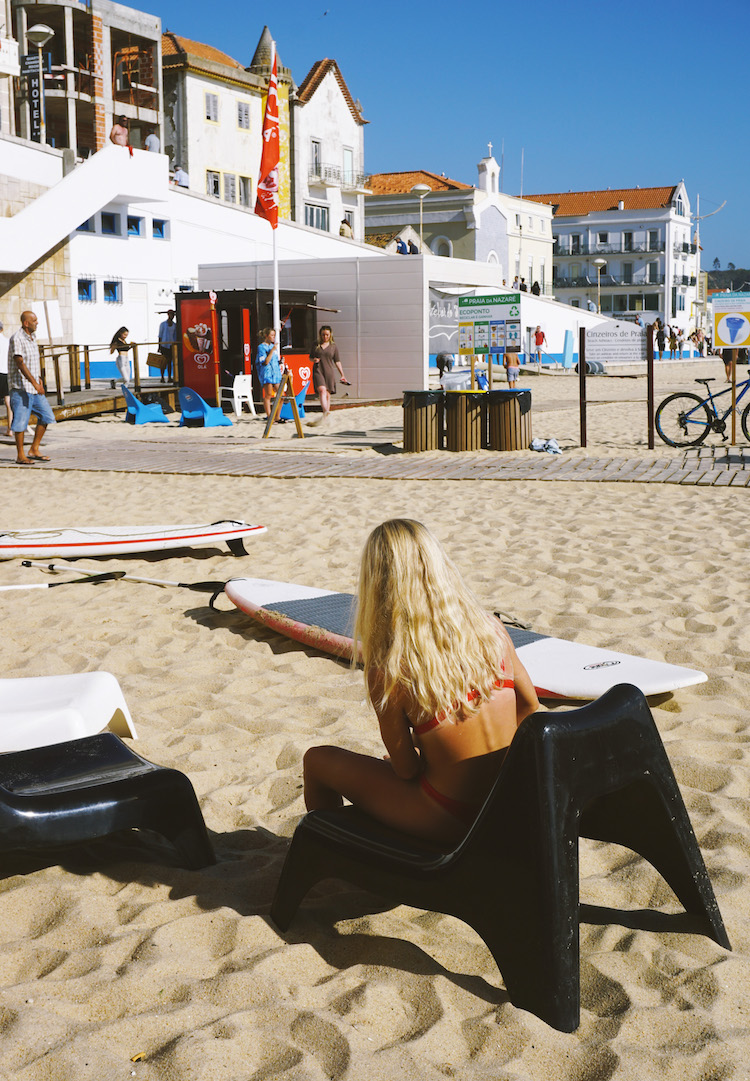How to save for a European summer, according to an accountant and financial planner
Words by GENEVIEVE PHELAN
Getting savvier with your sojourns.
Last year, we were still feeling the collective hangover from many a lockdown. While travel resumed, 2023 seems to be the year for the Big Euro Trip renaissance. And if you’re currently plotting a European escapade like many young Australians, I’m going to take a wild guess that you’re hustling hard to bank some solid spending coin before jet-setting around some fabulous overpriced party islands.
Whether you’re hard-strapped for extra cash or want to maximise your travel spending with some smart tax (and life) hacks, this one’s for you. I reached out to Simon Cammiss, founder and Wealth Adviser at Wealthyer, to give us some tips on saving for a special vacay.
For more saving advice, browse through our Life section.
Simon is an expert in all things financial advice, which is not my wheelhouse (confirmed as I clock yesterday’s frivolous Mecca purchases in my periphery). I asked Simon precisely how one can get savvier in the leadup to a European jaunt (or any kind of holiday, really). His wisdom is – as one can imagine – highly practical and maybe a bit obvious, but it takes discipline to be consistent with it. Let’s heed this advice and hit up Acne in Le Marais, okay?
What are some everyday purchases that can be avoided when saving for a short-term money goal like a Europe visit?
Ditch the Uber Eats and takeaway until your getaway, because eating a bit boring, cheap and at home will make all that tapas, paella, pizza, pasta and wine taste even sweeter. Dust off your old push bike (or borrow a friends!) to save on using the car or public transport for local trips. Riding is great for your health and the planet and saves pesky costs like the odd parking ticket and fuel, as well as prepping you as a very Euro way of getting around.
And how about any life-hacking savings in our day-to-day?
An oldie but a goodie: work out how much spending money you need for a fabulous Euro trip and divide this by the number of pay runs left until you leave. This is your Euro stash amount. Grab yourself a currency debit card such as Wise or Travelex, and straight after each pay transfer the Euro stash amount to your debit card so it’s locked and ready to go.
In terms of travel bookings and purchases for activities abroad, what should one look out for when attempting to cut costs?
Set up alerts with a comparison site like Google Flights or Skyscanner to track prices for travel to your preferred destination, so you don’t miss out on that bargain flight sale. When you find that awesome apartment, swanky hotel or quirky Airbnb to add to your itinerary, take a few more minutes to scan the net for the same property on other booking sites as well as the property’s own site. There can be a surprising difference in price between the different sites and [it can] help stretch your budget a bit further.
Advice for sole traders and business owners
If the above doesn’t exactly resonate with you (perhaps you’re a sole trader or creative planning to do some work while overseas) I’ve also wrangled my accountant Chris Cassar. Chris is an oracle on all things business expenses and is, obviously, smart with taxation, specialising in the realm of creative freelancers and small businesses. I now have a habitual way of asking for “A receipt, please!” after every single client/work brunch date, Officeworks stint or Uber drive. She’s financially smart(er) these days!
I’m even getting clever at travel expenses, i.e. keeping track of all accommodation, flights and other collateral payments that occur during a Sydney fashion week junket. But while contemplating a European escapade of my own in the near-ish future, I’m starting to think about how I can strategically plot some work meetings abroad to maximise my mula. Turns out, there’s a bit that goes into it, and you can’t just tell the ATO you’re sailing around Greece for ‘inspiration’. Gutted.
Here, I’ve asked Chris to shed some light on business expensing before a big holiday, or applying it to elements of your vacay to hopefully cut some costs in the long run. For all the GST-registered people out there, this is exactly how the mechanics of a ‘work trip’ actually work.
When it comes to day-to-day business expenses, what are some things to remember as a sole trader or biz owner saving for an overseas holiday?
Make sure you keep track of any business-related expenses that will help reduce your tax liability and ultimately save you money. Think about each purchase to determine if there are elements relating to your business that may be tax deductible (e.g. stationery/printing supplies purchased at the supermarket as part of your weekly shop should be noted and the receipt kept). Common tax-deductible items that are often overlooked are subscriptions for business tools such as Adobe, website/email hosting expenses, digital subscriptions and business use allocations for mobile phone and internet costs.
What does it take for someone to be able to claim some of their travel expenses? How does it work?
For travel expenses to be tax deductible, the primary purpose of the trip should have a direct connection to your business activity. It should be to undertake activities such as attending conferences/seminars, attending business meetings with current and prospective clients etc. Where the trip also contains an element of leisure the tax-deductible expenses will be limited to the business portion of the trip – for example, if five days of a 10-day trip were genuinely for business purposes at a high level approximately 50 per cent of the travel costs would be tax deductible.
When overseas, how can someone properly monitor their business meetings/events for taxation purposes?
If the trip is greater than six nights, the ATO requires a travel diary to be kept. This should outline each day of your trip and what was done and timing. For example, ‘Day One: 9am to 10.30am, meeting with Client X‘, ‘12pm to 5pm Creative Writing Industry Event’. This would show that the majority of Day One was business-related. At the end of the trip, the travel diary should allow the business portion of the trip to be calculated which will form the basis for any travel expense claims. Make sure you keep all receipts/itineraries that will support your claims.













